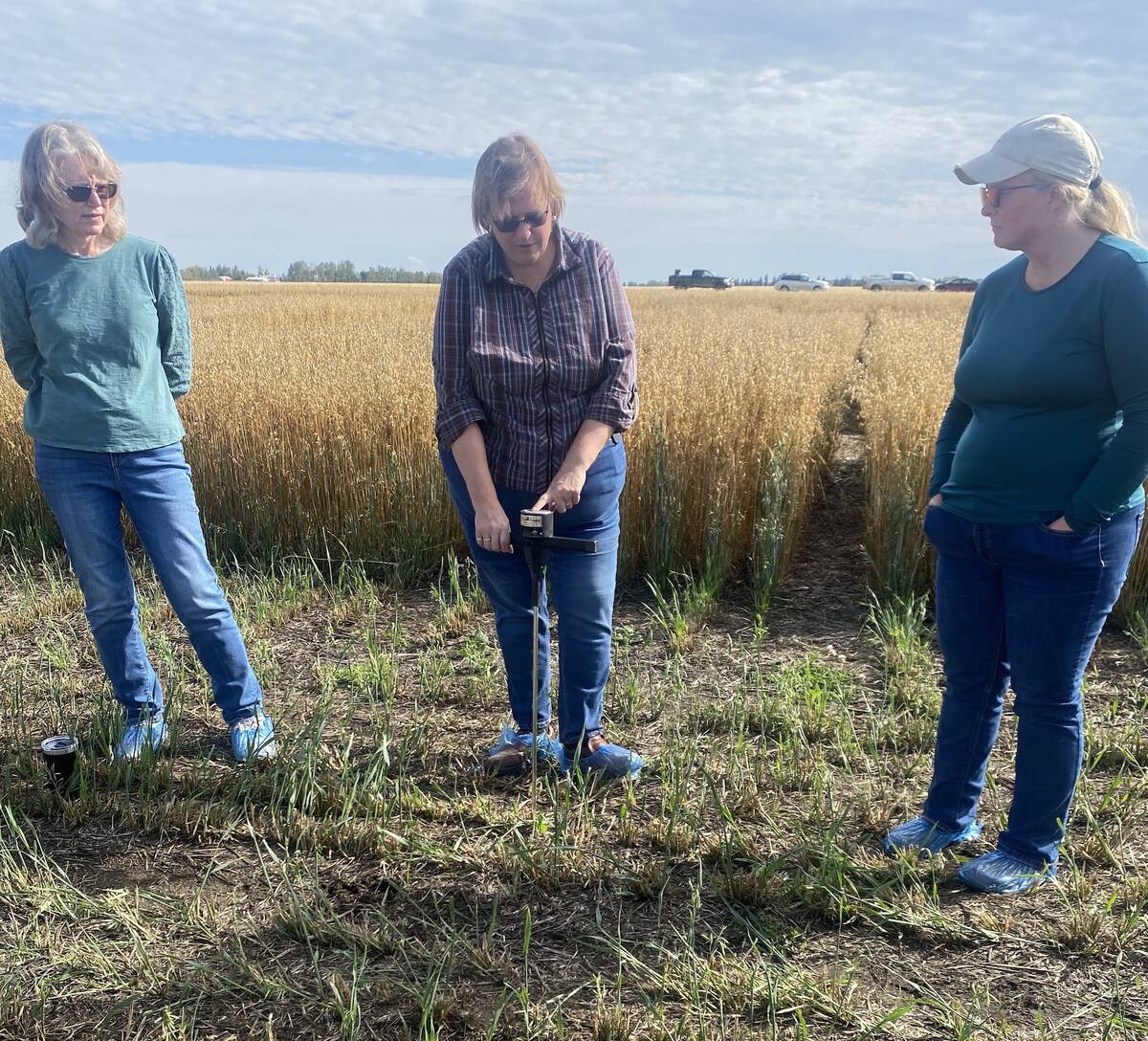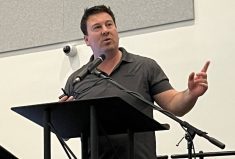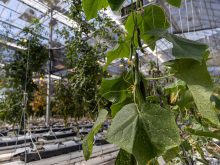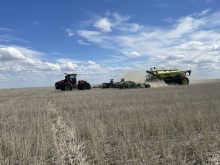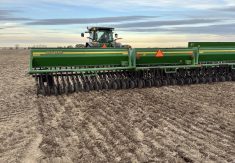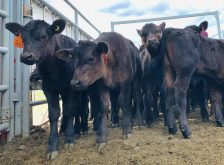Gateway Research Organization (GRO), based in Westlock, has started a quarterly learning series exclusively for women.
Andria Carlyon, manager of GRO and Stacy Murray, extension coordinator for GRO, came up with the idea, and held their first GRO-ing Women in Agriculture event in April 2025.
“Andria and I were talking one day, and we said, we should start something just for women,” said Murray.
Read Also
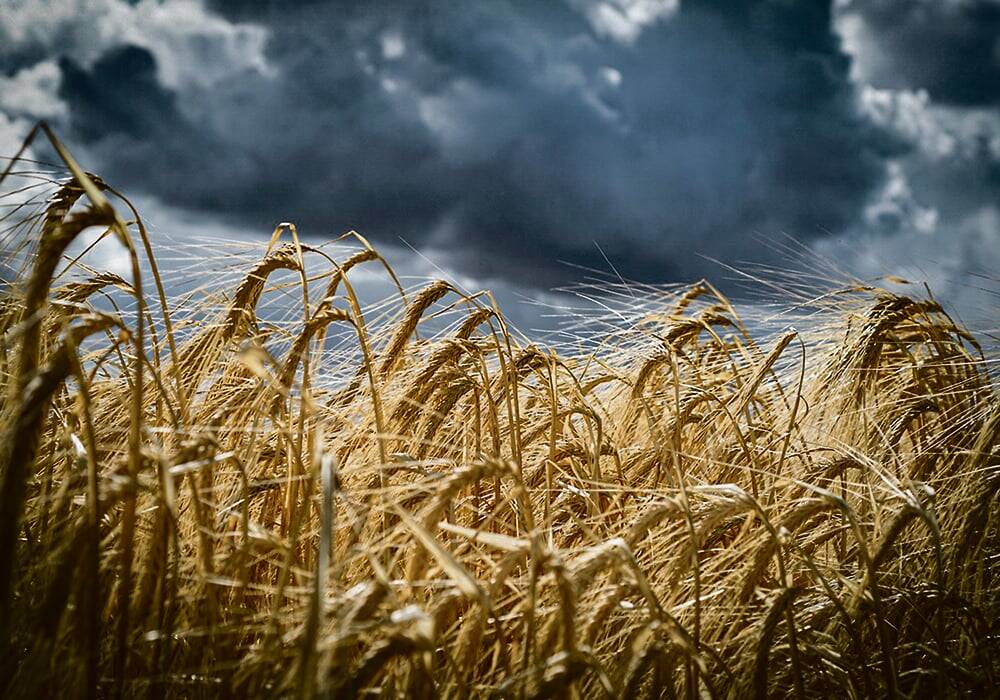
Corn market looks bullish; barley has potential
Canadian commodity market analyst makes his predictions on what barley and corn commodities will look in 2026.
“There are an incredible number of women involved in agriculture. More women don’t come from a farm background, so they come into agriculture not knowing what they don’t know, and then they’re somewhat reluctant, maybe, to ask questions in a mixed crowd,” said Murray. “They’re way more relaxed and open if they’re in a group of just women, or at least, that’s our experience,” she said.
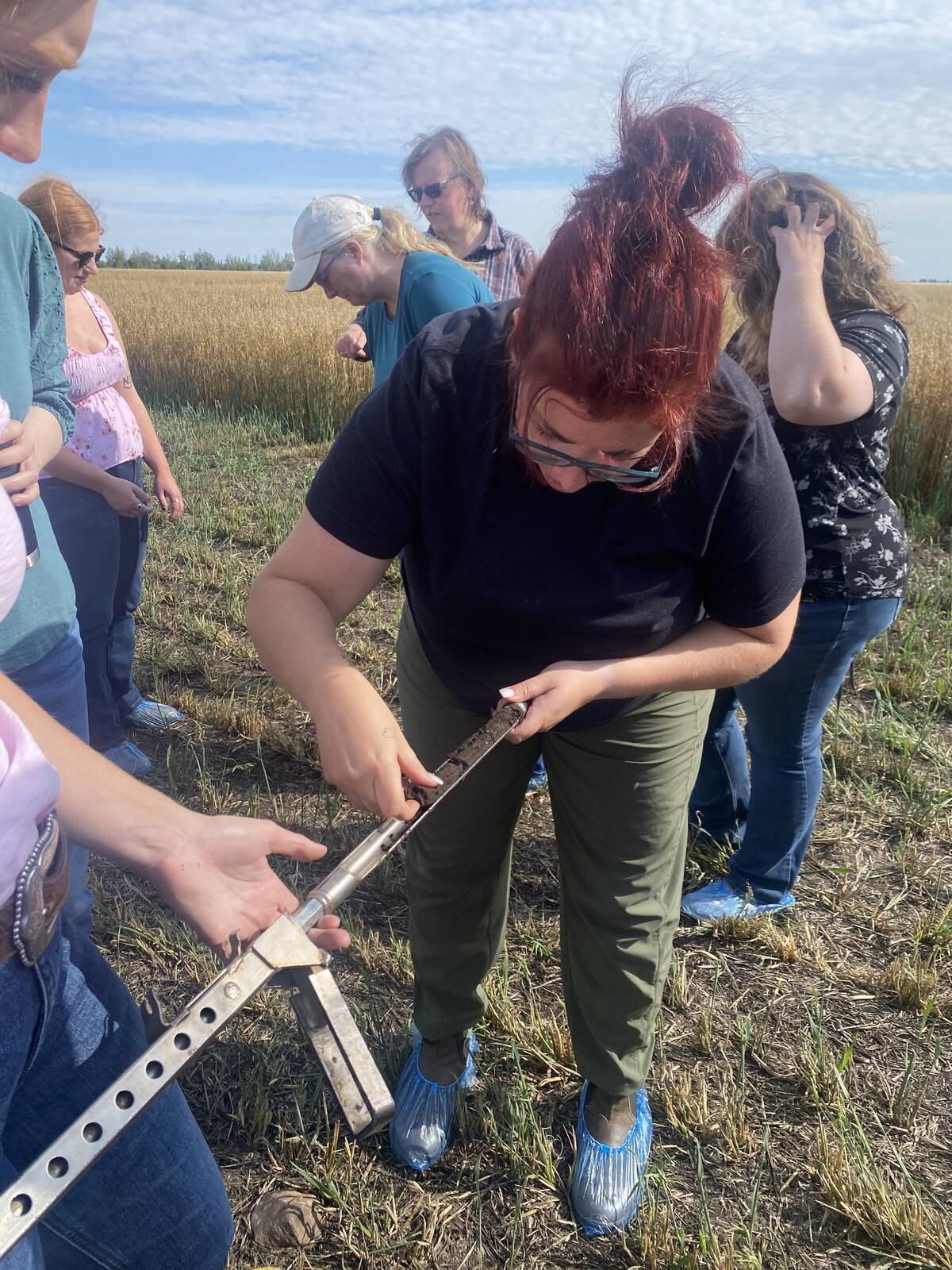
Carlyon said women are becoming more prevalent in agriculture, as it has been very male dominated.
“Sometimes with society pressures and the history of it all, (women) are not as comfortable saying ‘I am a farmer,’ or ‘I work in agriculture’ and they’re pressured or a bit quieter in mixed groups,” she said.
“This way, it provides a bit of comfort and connection with other people in the ag industry,” said Carlyon.
Women attendees can discover other attendees with common interests or knowledge.
Each session has a different theme.
The first event was focused on light duty mechanics, and a female mechanic taught the participants about cars.
GRO put a vehicle on their lift and the female mechanic explained how to read the side of the tire, so if the decal is worn off the door, people know how to put air in it. She explained how to torque the tires, as many of the women live on farms with a shop with a torque wrench.
“She went through some basic stuff, like how to change a windshield wiper blade. Lots of women are very capable and know that,” said Murray.
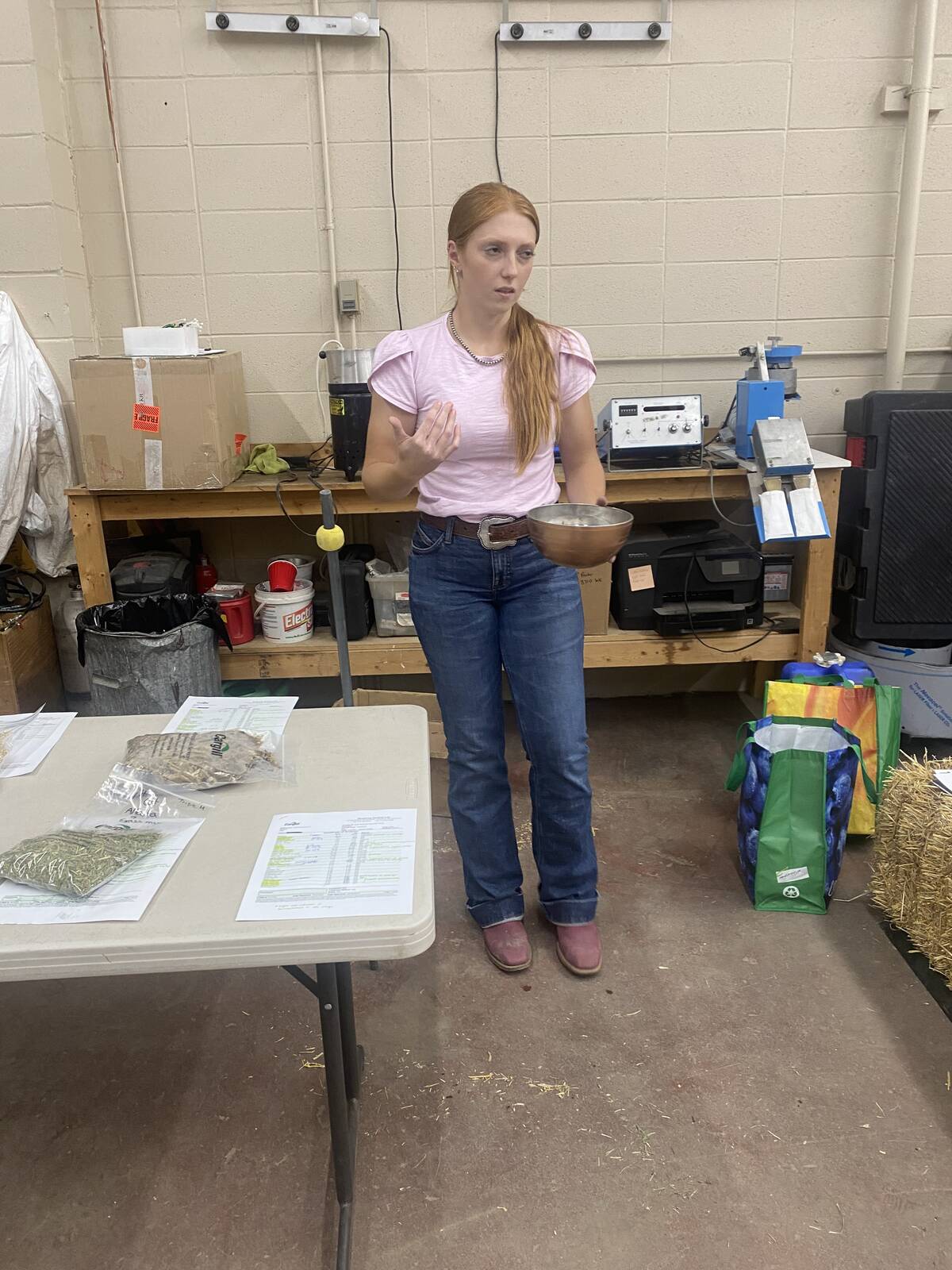
But there are some women who don’t know, and who feel more comfortable asking questions if it’s a group of women.
Every event features a supper, and children are allowed to attend, so women don’t have to worry about childcare.
“That’s because part of networking and socializing and being comfortable, we tend to do that over a meal,” said Murray.
The women are also asked to contribute some of their knowledge at each event. The first event’s tip asked the women their shortcuts on a busy evening, when they have little time to eat, but must prepare a meal for a family, while the second asked attendees to bring their favourite crockpot recipe.
The second event was held August 19, and the theme was testing. Three women experts showed ways to test soil, feed and seed. About 19 women attended the event, and only three of them had attended the first event.
Katelyn Miller, sales consultant with AgroTek360, demonstrated and discussed soil tests.
Miller stressed using the same lab for soil tests. “I don’t care what that lab is, whatever you pick. If you send that soil sample to five different labs, you’re likely to find five separate results,” she said.
Different data points will be generated if multiple labs are used, she said.
Miller said when she is soil testing with a probe, she walks the field in a “W” pattern.
“I try to get an even representation of the field,” she said. Miller pulls anywhere up to 50 samples in the field to try.
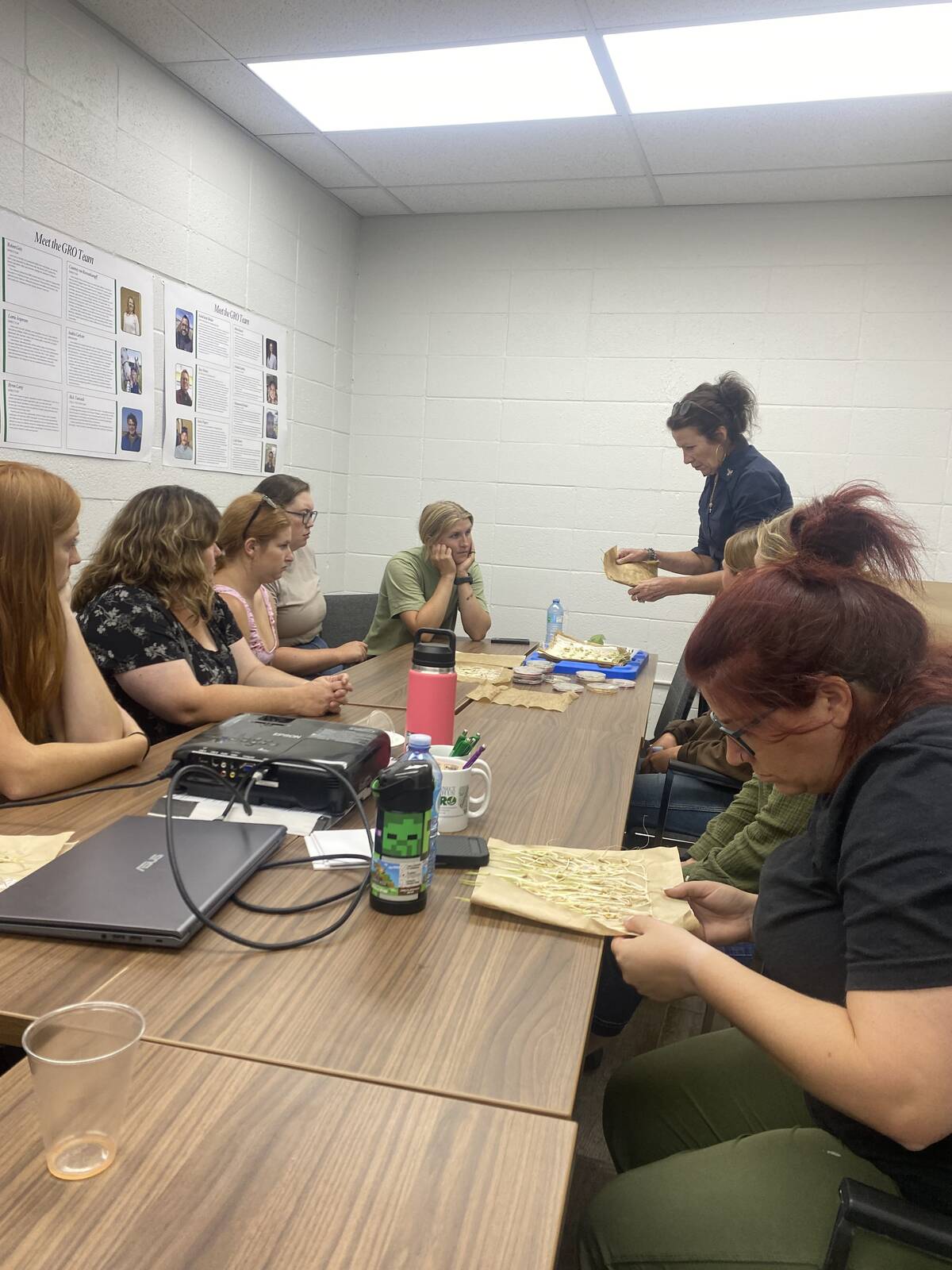
Many farmers know the trouble spots in their fields, and Miller recommends taking a handful of samples from the trouble spot.
She demonstrated how to collect soil using GRO’s truck, which contained a hydraulic probe.
“Soil testing is so variable,” she said.
If you’ve got all these samples as a producer, combining them all together is not giving you a true tale of what’s in the field, said Miller.
Murray demonstrated how to use a penetrometer, which measures soil compaction.
“We generally measure how deep we can go before we hit 300,” she said. “Nine to 12 inches is the average of what we’ve found here.”
Women were invited to try out the probe and the penetrometer and examine cores and samples.
Sarah Elliott, a dairy nutritionist and consultant with Cargill, demonstrated how to probe a bale using a drill.
Sarah Foster, the third speaker of the event, is the founder, president and senior seed analyst of 20/20 Seed Labs. Her company includes crop inspectors, geneticists, disease diagnosticians and agronomists, among others. Offices are in Winnipeg and Nisku.
When a grower or seed distributor brings a sample to 20/20 Seed Labs, the team verifies the crop guide, variety, crop certificate, lot number and all required tests such as germination.
Foster said being a seed analyst appeals to a lot of women.
“We can do detailed stuff. We’re very nimble. That is a big part of the job. There isn’t anything in the tech world yet that has been able to replace us, and they’re working on it,” she said.
Her team includes 35 people, including 26 women and nine men. 20/20 also has a lab in Chile, and some team members go to Chile in January to spend three months working with a Chilean agronomist.
The third event is tentatively planned for October and will be about bookkeeping, taxes and accounting. The event will be a workshop, and women are encouraged to bring their own books. The fourth session will take place in January 2026 and will have a focus on calving and lambing.


